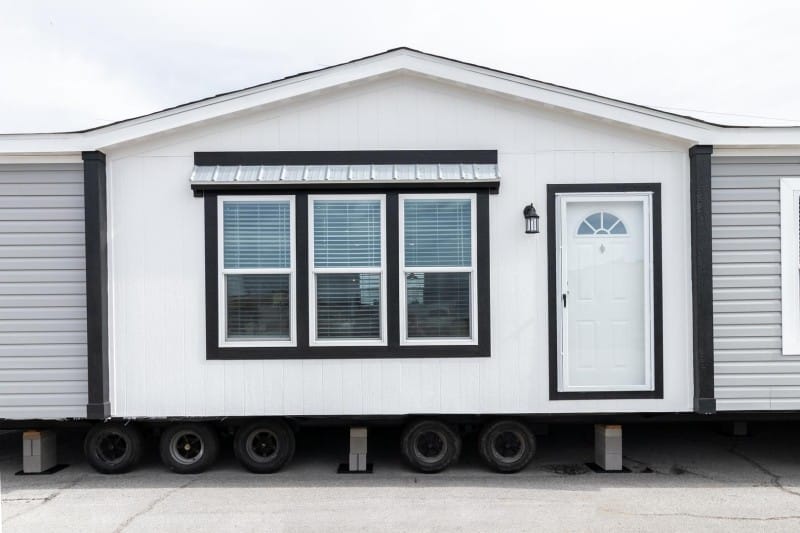When it comes to real estate investment, most people think about flipping houses. Buying a fixer-upper, renovating it, and selling it to the best bidder seem ideal to maximize your returns. One lucrative area in the real estate industry that’s often overlooked is mobile home investment. In this post, we’ve shared a detailed guide on purchasing a mobile home with cash and its pros and cons. Let’s take a look.
What are Mobile Homes?

Mobile homes are exactly what the name suggests. They are like trailers that are towed and placed in mobile home parks. They are smaller than average homes and have wheels that allow homeowners to move them to different locations according to their convenience. However, these homes have gone through a transformation in the last few years. They are now available in a comparatively bigger size and as a result, require a large truck designed to carry heavy loads.
Instead of the entire home being towed and put on the ground, the parts of these mobile homes are carried on the truck and delivered to the target location. Once all parts are delivered, they are assembled and fit together. There’s a common misconception that these homes are fairly cheaper because of their size, but they can be as expensive and lavish as normal homes.
Mobile homes offer great investment opportunities to the real estate investor—those who flip houses and those who rent out their properties for a passive income. As a landowner, you won’t be responsible for the maintenance of these homes. The tenant will take care of that. You only get the rent for the area you have lent to the tenant for keeping their mobile homes.
Pros and Cons of Mobile Home Investment
Investing in mobile homes can help you diversify your income portfolio and ensure a steady income. That said, the investment comes with its share of risks. Like other investments, it’s important to weigh the pros and cons of this investment before you buy mobile homes. Let’s see the pros and cons of mobile homes.
- Cheaper: Unlike a single-family home, mobile homes are cheaper and will cost you only a few hundred dollars a month if you finance the investment.
- Regular Demand: In cities that have mobile home manufacturing plants, like Texas, there’s been a constant and huge demand for these homes. Not just because of the convenience, but the low-cost investment makes them a lucrative option for aspiring homeowners.
- Reasonable Cost of Maintenance: Mobile homes require far less maintenance than regular homes. The cost of plumbing and wiring is considerably lesser than homes built on the ground. Those who own mobile homes have to pay little for the maintenance, while people who own the land that’s rented to a mobile home owner won’t pay a single penny for the maintenance.
Cons
- Limited Density: Most states have restrictions on the number of plots that can go into mobile home parks. It’s important to compare the returns with your investment before investing.
- Less Appreciation: Mobile homes might have high demand, but they still do not appreciate like single-family homes. That’s because of the stigma surrounding these homes. People either buy apartments or build a house from the ground up. Mobile homes appear less effective for families that want to move to a new town permanently.
Tips for Maximizing Your Investment
A large population in America wants to build their own homes but is not in a financial state to do that. They rather buy mobile homes, which are cost-effective and convenient. So purchasing a mobile home with cash has some perks. Here’s how you can maximize your returns from this investment.
Managing Your Properties
Management of mobile homes is different from managing single-family homes and apartment complexes. You’ll either rent the home itself or the land where the mobile home owner places their home. Either way, mobile homes have a bad reputation. Tenants tend to believe that it’s a low-quality place to purchase or rent.
To avoid that, you should get involved in the community as much as possible. Talk to the tenant to see where they want improvement and what can you do to make the place look better. Managing the land is crucial for these homes. If the place has grown weeds, that’s a bad sign for tenants. Likewise, a mobile home park with not a single blade of grass is not considered good. You should focus on the landscaping to improve the area.
Screening the Tenants
Another thing that drives tenants away from mobile homes is the misconception that mobile home parks have a high crime rate. That’s totally a misconception. But as a mobile home park owner, it’s your responsibility to ensure that the criminal record of every tenant getting their mobile homes on your land is checked properly.
Background screening will help you know if the tenant has been behind bars or is associated with any crime scene. While you are at it, check if the tenant has a good reputation. Talk to their previous landlords to know whether they paid the rent on time or if they caused any problems for the neighbors or the landlord. The thorough screening will give you a clear picture of the tenant’s reputation.
Choosing the Right Location
Many factors go into deciding the most suitable mobile home for investment, but the most important factor is the location. An aspiring homeowner will always consider the proximity of the house to schools, hospitals, their office, transport, and more before buying it. They will also look at the crime rates in the area and the neighbors. So, before you buy mobile homes, research the area, neighbors, and other factors.
Conclusion
Buying a mobile home or a mobile home park can be a great decision if you know what it takes to manage these properties. Remember, finding the right tenant for your home matters as much for mobile homes as for any other property. So, choose wisely.

